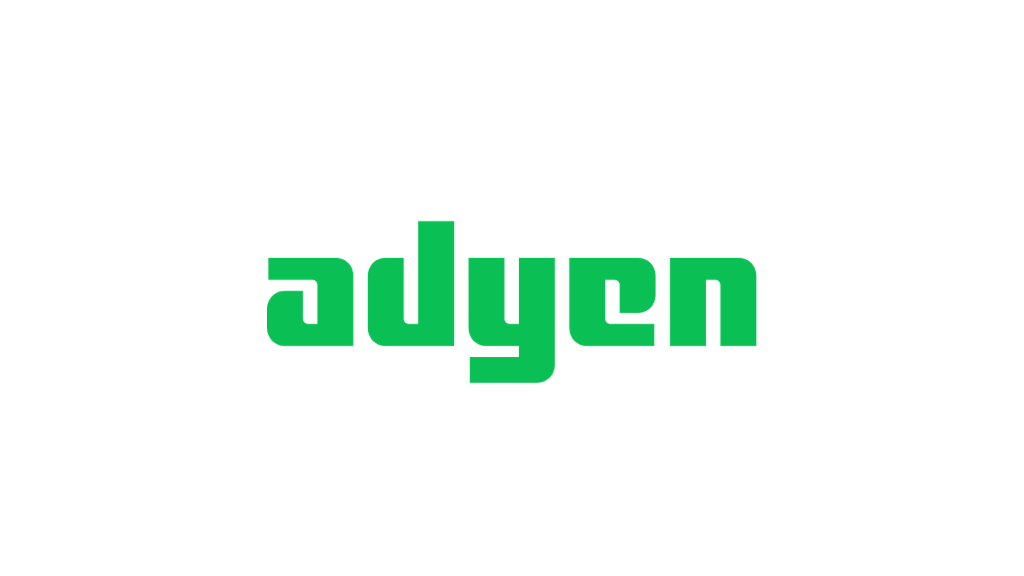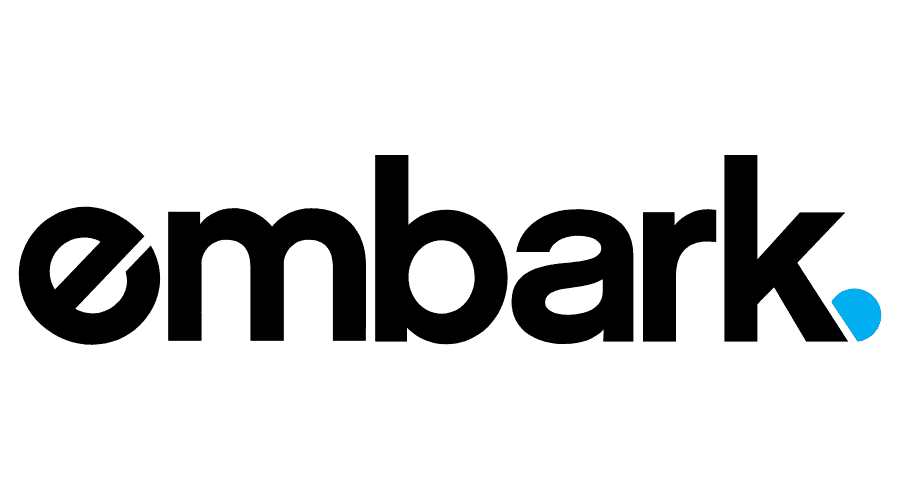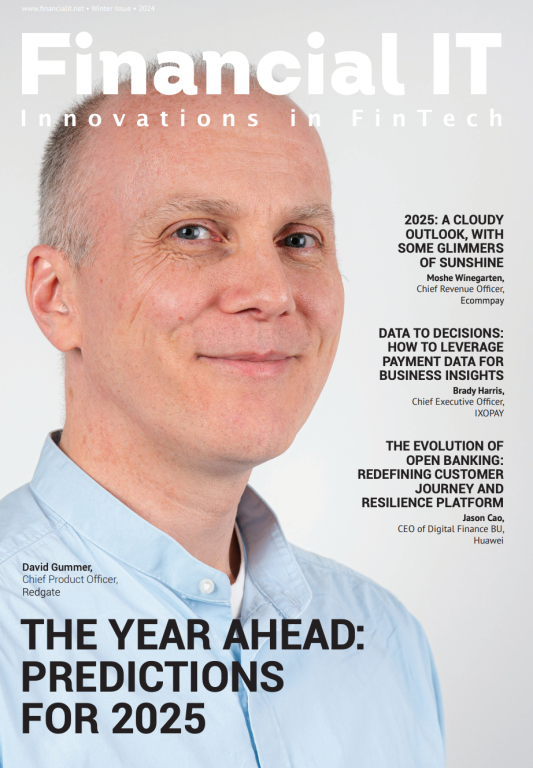Published
- 02:00 am

- Klarna launched its Small Business Support Package in July to help 100 retail SMEs get back on their feet
- 1,135 businesses across the country applied for the fund as half of retail SMEs (48%) have seen their revenue/turnover shrink since March 2020
- Winners were spread across four categories; retail innovator, omnichannel trailblazer, sustainability champion and pandemic impact
Klarna, the leading global retail bank, payments and shopping service, has announced the winning 100 SMEs of its inaugural £3m Small Business Support Package. The package is part of Klarna’s commitment to supporting the SME sector to drive growth and recovery across Britain’s small businesses.
Each winning SME will receive specialist support across numerous elements of their business operations. The package includes complimentary use of Klarna’s Pay later products for one year, WeWork All Access passes for three months and £15,000 worth of Klarna media services including in-app advertising, social media and promotional support on the Klarna app.
With 1,135 applicants, Klarna and the judging panel, which comprised of Matt Vickers, MP for Stockton South and Co-Chair of the APPG on Future of Retail, Mathieu Proust, General Manager, UK, Ireland & Emerging Markets at WeWork, Emma Jones, Founder and CEO of Enterprise Nation and Alex Marsh, Head of Klarna UK, undertook a round-table judging process to pick the top retail SMEs across each category.
The winning SMEs are spread across four different categories: Sustainability Champion, Retail Innovator, Pandemic Impact and Omnichannel Trailblazer. The businesses are based across the United Kingdom and operate in a variety of sectors including fashion, beauty, automotive and sports, and homeware. Recipients range from micro-businesses with a £5k turnover to those growing rapidly and turning over £2.5m every year.
Winners include sustainable activewear brand SOS which is made using recycled ocean plastics; Booheads, biodegradable bamboo electric toothbrush heads; Pantee, underwear made from recycling the overproduction of t-shirts in the fashion industry and UpCircle Beauty, skincare made from by-product ingredients salvaged from other industries, such as the food and drink industry. A complete list of winners can be found here.
Alex Marsh, Head of UK at Klarna said: “The retail industry has been hit hard by the pandemic and British SMEs have faced the brunt of it. At Klarna, we’ve long worked with businesses of all sizes and have always been focussed on supporting SMEs in particular. It was an honour working together with our partners to judge the inaugural SME Support Package. It was certainly a hard decision but the businesses we have chosen are truly making a difference across the industry, from sustainability to innovation, and we’re excited to be part of their future growth.”
Mathieu Proust, General Manager, WeWork UK, Ireland & Emerging Markets said: "It was a privilege to join the judging panel for Klarna's Small Business Support Package and to hear from so many impressive applicants. The last 18 months has presented huge challenges to businesses, particularly the retail SME community, and so it is great to be involved in this support package. We look forward to seeing what these exciting and innovative companies go on to achieve."
Emma Jones CBE, Founder of Enterprise Nation said: “Small business owners have had their heads down over the past year working on sales, adapting, fund-raising and more. Programmes and competitions such as these offer an opportunity to mark that hard work and allow founders a moment to pause and celebrate their achievements. It was a pleasure to be part of it and good luck to all entrants for success in the coming year.”
Alongside the package, Klarna also recently launched its Accelerator Program, a ten-part series of masterclasses online with industry experts to provide actionable insight and advice to help boost businesses, these are available for all, not just the winning SMEs. These are all recorded and available on the Small Business Accelerator Program homepage and have already benefited over 17k small business employees.
Related News
- 01:00 am

Fraud creates an additional challenge as the majority of UK retailers describe this year’s peak period as make or break for their business
Half of UK retailers anticipate a spike in fraud attacks on their businesses in the Q4 shopping period, new research commissioned by Adyen, the payments platform of choice for many of the world's leading companies, has found.
The news comes at a time when many retailers are already feeling the effects of fraud. More than a third (37%) report an increase in fraud attempts on their business during the pandemic, while a quarter (26%) admit that they fell victims to fraud or a data leak over this period.
With retailers depending on the peak period (Black Friday, Christmas, and the January sales) to boost annual retail revenues, fraud attacks at this time can be even more catastrophic. This year, when retailers have been tackling supply chain disruption, staff shortages, and the lingering effects of the pandemic, 53% describe peak as ‘make or break’ for their businesses.
Despite challenges, retailers are optimistic about the peak season and the possibility of shoppers returning to stores. The majority (56%) say that physical stores will play a more important role in this peak period. Customers appear to agree; less than a third (32%) say they will avoid shopping in stores following the pandemic.
However, retailers must focus on delivering stand-out experiences while protecting against fraud, or customers will vote with their feet. Almost two thirds (65%) said they will not shop with a retailer again if they have a bad experience, either in store or online.
Consumers also have high expectations for the hospitality sector when it comes to fraud protection, with 57% believing that restaurants, bars, and cafes need to do more to protect them from fraud.
“The peak shopping period is so important to retailers every year, but it has taken on even more significance in the context of the pandemic,” said Colin Neil, UK Managing Director of Adyen. “After the disruptions of last year’s regionalised lockdowns running into Christmas, retailers can take heart that consumers are looking forward to returning to stores again.”
Neil continued, “but whether in store or online, a laser-focus on fraud defense will be critical, especially since fraudsters are most active during these busy periods. Luckily, today, the same technology that ensures customers enjoy the smoothest possible payment experience, also acts to protect them. AI and machine learning helps customers authenticate themselves quickly and easily, keeping payments frictionless while safe-guarding their data and your business.”
The research is part of a report on the state of the UK retail sector, titled The Expectation Gap, which is available to download here. Research was conducted by Censuswide and Opinium on behalf of Adyen polled 358 retailer decision makers and 2,000 consumers respectively.
Related News
- 03:00 am

Clausematch, the global regulatory technology (RegTech) company automating policy management and compliance, is delighted to announce that 90,000 Barclays Bank employees across the globe are now using its platform.
This industry-first partnership represents one of the first, and one of the largest initiatives in the space, and is a reflection of a growing recognition in the financial sector that compliance must be addressed on a company-wide basis. Clausematch’s technology supports Barclays in solving governance problems, realizing significant cost savings while reducing compliance-based risk. The rollout of Barclay’s Policy Portal in partnership with Clausematch is the successful culmination of a collaboration that spans more than six years.
Barclays was an early supporter of Clausematch’s vision, having selected the company for inclusion in its inaugural Barclays Accelerator program in 2014. The bank initially embedded Clausematch technology within its Compliance function, which laid the groundwork for rolling out the Policy Hub, one of Barclay’s first cloud-based technology implementations.
The Policy Hub has now evolved into the new Policy Portal – a fully digitalized, central point of reference for all Barclays Group policies and standards. The Portal introduces simplified workflows, saving up to 25% in time and resources on creating, reviewing, approving, and publishing policies.
Speaking of the collaboration, Evgeny Likhoded, CEO and Founder of Clausematch states: “We are proud to have established a long-term working relationship with Barclays that’s bringing tangible benefits in an area as complex as financial compliance. Our partnership demonstrates the mutual advantages and value to be gained by sharing the technical agility of a startup with the expertise and scale of an established institution like Barclays.”
Richard Thompson, Barclays UK Head of Digital Product Development who formerly led the Barclays Accelerator, says: “Back in 2014, Clausematch was a smart and promising small company of just six people looking for the right product-market fit. We knew that their ideas chimed with Barclays’ digitization goals and that they’d be able to benefit from the experience and mentoring of our business teams.” Clausematch has since grown to a team of sixty people.
Simon Fremont, Director for Policy and Standard Governance in the Chief Controls Office. “Close collaboration with the Clausematch team has allowed us to roll out a modern system with many of the new capabilities required by modern Tier 1 banks.”
Since the 2008 financial crisis, compliance costs for financial firms have increased by around 60%. At the same time, there has been a push towards digitalization with an increasing need for better collaboration and a more agile response to regulatory change. The rising importance of ESG transparency, along with an evolving regulatory landscape surrounding climate disclosures, adds a new dimension to financial compliance.
As one of Europe’s largest banks, Barclays is at the forefront of these changes and has invested heavily in tools and technologies designed to help it meet the challenges.
Clausematch’s RegTech platform supports Barclays’ efforts to further its digital transformation and make financial and ESG compliance more effective. By streamlining the process of updating policies, frameworks, and controls, new systems and ways of working can be introduced more quickly and with less scope for disruption or human error.
Related News
- 06:00 am

- Mastercard Track™ Business Payment Service and new partnership with Demica enables easier access to flexible working capital for buyers and suppliers
- New offering supports Mastercard’s expansion of its Track BPS network around the world with new partnerships solidified in North America, Middle East & Africa, Europe, Asia Pacific, and Latin America
Mastercard today announced a new supply chain finance capability within Track Business Payment Service (Track BPS) – designed to increase access to working capital while lowering costs, reducing complexity and risk, and accelerating automation when businesses pay and get paid.
Launched in partnership with Demica, a leading global provider of supply chain finance technology, this new offering empowers Mastercard partners to provide their business customers with access to affordable working capital. Mastercard Track, an open-loop network, can now connect providers of B2B payments and their respective buyer and supplier customers to working capital.
A lack of scalable solutions in the market has put supply chain financing out of reach for many businesses. As a result, only the largest suppliers can access working capital solutions, while trillions of dollars are tied up in accounts receivable each year.
Mastercard’s solution unlocks a network for working capital - covering small businesses and global corporations alike, driving speed to market, and offering ease of integration for payment partners. Demica brings a global, flexible, multi-product financing platform and expansive network of banks and other funders at scale. Payment partners and their customers can benefit from Demica’s capabilities ranging from advisory services, supplier onboarding, and a white-labelled deployment process.
“We are delighted to be working with Mastercard to transform the B2B payments landscape. This partnership will unite Demica’s scalable platform technology with Mastercard’s powerful infrastructure to make a real difference for businesses globally,” said Matt Wreford, CEO, Demica. “Our platform automates financing of payables and receivables and our global network of banks and non-bank investors opens up access to new sources of capital – we’re excited to bring these benefits to more companies through our global partnership with Mastercard.”
By launching this first of its kind, embedded working capital capability in Mastercard’s Track Business Payment Service multi-rail platform, Mastercard is doubling down on its commitment to empower every business to get the working capital they need to thrive. This solution enables payment partners to extend the reach of buyer programs to more of their supply chain partners, strengthening supplier relationships. Suppliers gain improved access to competitively priced early payments and enjoy enhanced user experiences, such as one-time enrollment, standard agreements, and easy implementation leveraging their partner connections.
Craig Vosburg, Chief Product Officer, Mastercard says, “Helping businesses optimize their working capital has been one of the key goals of Mastercard Track Business Payment Service. Disparate systems and processes in the current B2B ecosystem continue to make cash flow management complicated, increase operating costs, and hinder business growth. Our new offering and partnership with Demica help solve these pain points by allowing buyers and suppliers to unlock their working capital and deploy it to grow their businesses – enabling choice and scale and accelerating financial inclusion.”
Mastercard is integrating its Track Business Payment Service network and its blockchain-based Mastercard Provenance Solution in supply chains across industries. Buyers and suppliers will see improved visibility, traceability, and procure-to-pay cycle times. As a result, payment partners can use this data to reduce risk, decrease reconciliation costs, and help further advance early payments in the accounts payable and receivable processes. The offering will provide access and support to a new suite of APIs to power each step of the commercial payments journey. Learn more at Mastercard Developers.
This new supply chain finance offering is available on Account-to-Account (A2A) rails in the United States with plans for global expansion throughout 2022 as Mastercard continues to onboard partners in this space through its focused approach to global trade.
New Track BPS Partners Offer Choice for Customers Around the World
Mastercard continues its strong growth with network partners supporting Track Business Payment Service which is now live in regions around the world for A2A and global card payments. Today, businesses of all sizes can use this service to optimize payments and streamline reconciliation through payment partners in financial services, fintech, and business automation services industries.
New partnerships in North America include HSBC, FreshBooks, FISPAN and SnapAP who will offer the Track Business Payment Service capability to their commercial customers. In addition, global scale continues around the world with new partners in the Middle East & Africa, Latin America, Europe and Asia Pacific including: Abu Dhabi Commercial Bank, Abu Dhabi Islamic Bank, Cirralto, Emirates Islamic Bank P.J.S.C, First Abu Dhabi Bank, FlowPay, H&CO, Mashreq Bank, RAKBANK, RFM Loyalty, Standard Bank, and Telr.
Related News
- 09:00 am

- Responsible investing less important to younger investors
- Concerning findings ahead of landmark climate summit
The Embark Investor Confidence Barometer has revealed that the majority of investors believe that it is their responsibility to invest in a way that doesn't contribute to climate change. However, despite this, investors appear ambivalent to acting with a half of respondents saying that responsible investing is not important when making decisions about their portfolio - a concerning insight as COP 26 draws near. This is particularly the case for the youngest investors, even though most do not believe it hinders returns.
The Confidence Barometer, a half-yearly survey of 1000 people* conducted by Censuswide for the Embark Group (Embark), a UK retirement solutions provider, found that:
Investors believe they have responsibility to the environment…
Most advised (61%) and non-advised investors (62%) agree it is their responsibility to invest in a way that doesn't contribute to climate change. Significantly, very few investors actively disagree with this sentiment (19% of advised and 10% of non-advised) either.
This viewpoint resonated most strongly with non-advised investors aged between 35-44 (73%) and non-advised female investors (68%).
…however, people appear ambivalent about acting…
Around half of both advised and unadvised investors (50% and 51%) respectively agreed that responsible investing was not important to them when making decisions about their portfolio. This was slightly split along gender lines, with 54% of advised men stating that responsible investing was not important to them, compared to 46% of advised women. Only a quarter (24%) of advised investors disagreed and this was even lower for non-advised investors (18%).
And the younger the investor, the more indifferent they appear to be. 61% of those aged 35-44 agreed that responsible investing was not important to them in making decisions about their portfolios, compared to 42% of 65-70 year olds, and 40% of 55-64 year olds.
…although they are bullish that responsible investing won't hinder returns…
Only 16% of investors believe that responsible investing reduces returns. This is even lower for younger (35-44 year-old) non-advised investors (8%). And, more than half (54%) do not believe investing responsibly hinders returns, though older investors are more likely to be unsure, or suspect it does.
However, a significant minority remain unsure (28% advised and 36% non-advised). Advised female investors are less certain about whether responsible investing hinders returns – 49% of women are confident it does not, compared to 58% of men.
This uncertainty is not just amongst investors: it is reflected amongst financial advisers, where 31% of those polled are neither confident or unconfident on the question of whether responsible investing impacts returns.
More to be done?
Commenting on these results, Sara Wilson, Head of Platform Proposition, Embark, said: "Pretty much everything we read tells us millennials are prioritising responsible investing. In some ways, the findings of our latest Barometer reinforce this view: almost two-thirds of investors agree it is their responsibility to invest in a way that does not contribute to climate change. However, this does not appear to be influencing on-the-ground investment decisions.
"So, while investors are talking a good game, our Barometer suggests that many of those with investable wealth – i.e. those in a good position to do something about it – don't yet consider it important enough to influence their investment choices. With the UN Climate Change Conference kicking off in Glasgow shortly, this is a concerning insight."
The Confidence Barometer also identified a clear hurdle for the industry to overcome: confidence in the accuracy of ESG information provided in relation to portfolios.
The survey revealed that nearly a quarter of advised investors (23%) are unsure if the information provided on ESG in relation to their portfolios is accurate. This number was even higher for non-advised investors (43%). That 70% of advisers are confident that the information is accurate suggests that this is an issue of education for investors.
Encouragingly though, it seems that investors are simply unsure rather than believing that information is incorrect, so an opportunity to change perceptions exists. Furthermore, with 61% of investors believing their financial adviser provides them with an adequate spectrum of ESG options, there is an opportunity for advisers to do more with ESG for their investors.
Barometer survey details
* The Embark Investor Confidence Barometer surveyed the following groups:
- 254 advised consumers (those that have a financial adviser) with a minimum of £100k investible assets, who have a pension and are aged 35-70
- 500 non-advised consumers (those that do not have a financial adviser), with a minimum of £100k investible assets, who have a pension and are aged 35-70
- 251 (18+) financial advisers who have clients, whose company/firm has assets of less than £500 million
The survey was conducted by Censuswide: https://censuswide.com
To access the full Embark Investor Confidence Barometer, go to: https://embarkgroup.co.uk/icb
Related News
- 06:00 am

The first US Bitcoin futures exchange-traded fund (ETF) launched yesterday.
Here’s how it works:
- ProShare filed its application for ProShares Bitcoin Strategy ETF (BITO) with the Securities Exchange Commission (SEC) in 2017.
- The ETF exposes investors to Bitcoin future contracts, which are agreements to buy or sell the asset later for an agreed upon price. BITO comprises Bitcoin futures that already trade on the Chicago Mercantile Exchange.
- By investing in BITO, users can gain indirect exposure to Bitcoin without actually owning the underlying assets.
The bigger picture: This is the first Bitcoin-linked ETF in the United States, but it most definitely won’t be the last.
- The SEC is reviewing more than a dozen crypto ETF applications, including one from Goldman Sachs.
- Robo-advisors and wealth managers are also increasingly interested in adding crypto investment options for their retail clients: Wealthfront added two crypto trusts to its investment options.
- Crypto ETFs would let them offer less risky investment options than buying specific cryptos—potentially giving ETF providers a large addressable market.
Bottom line: While doubtless a big milestone for the crypto industry, a futures ETF in the US might not be sufficient for many retail investors.
- Retail investors may be concerned about the accuracy of futures, which reportedly don’t always track the spot price of cryptos accurately, per CNBC. Many are therefore waiting for an ETF backed by Bitcoin itself.
- But that likely wouldn’t launch in the coming months—the future-based ETF was likely only approved because the laws governing futures provide stronger investor protections, per SEC Chair Gary Gensler.
- Companies seem to have taken note of this gap: Invesco, for example, pulled its application to issue a Bitcoin futures ETF and is now focusing on a directly backed digital ETF.

Related News
- 07:00 am

According to Central Bank of Brazil analysts, Brazilians have purchased more than $4B worth of cryptocurrencies so far in 2021 alone. It is expected that the number could reach as high as $8B in 2022. The purchases have not been the result of significant spiking activity, either. Each month since January, purchases have reached more than $350MM, though they reached more than $750MM in the month of May.
“Bruno Serra, Director of Monetary Policy of the Central Bank, noted that the interest in cryptocurrencies doesn’t seem as though it will fade anytime soon. That’s not an opinion unique to Brazil. Southeast Asia continues to see significant digitalization. Investors across the globe are using cryptocurrencies as a value store and a hedge against inflation. Others see cryptocurrencies as a close relation to the technologies behind central bank digital currencies,” explained Richard Gardner, CEO of Modulus, a US-based developer of ultra-high-performance trading and surveillance technology that powers global equities, derivatives, and digital asset exchanges.
The numbers are recorded as import/export statistics, meaning that cryptocurrencies are registered into the computation as an import or export, depending on the trade. That also means that the record is only of international sales, meaning that the real number is likely significantly higher.
“While the cost of energy makes Brazil a net importer in terms of cryptocurrencies, that has not discouraged involvement in the industry. People see what’s happening, and, even if they don’t technically understand all of the components, I believe that they understand that the technology behind Bitcoin and other cryptocurrencies is here to stay. They know when they see something transformative, and this is, most definitely, transformative,” said Gardner.
Modulus is known throughout the financial technology segment as a leader in the development of ultra-high frequency trading systems and blockchain technologies. Modulus has provided its exchange solution to some of the industry’s most profitable digital asset exchanges, including a well-known multi-billion-dollar cryptocurrency exchange. Over the past twenty years, the company has built technology for the world’s most notable institutions, with a client list which includes NASA, NASDAQ, Goldman Sachs, Merrill Lynch, JP Morgan Chase, Bank of America, Barclays, Siemens, Shell, Yahoo!, Microsoft, Cornell University, and the University of Chicago.
“People are watching what’s happening in the world. They see that the pandemic has spiked inflation. They’re watching supply chains falter. They’re watching China move quickly to develop and release the e-yuan. They know that being an early adopter is important. That’s why there is so much interest in cryptocurrencies right now, and I think that interest is going to sustain itself as we begin to see central banks publicly adopt similar technology when they launch their digital currencies," said Gardner.
Related News
- 03:00 am

Investment underpins CFC’s global insurance platform, cyber leadership and the significant growth potential of emerging risk insurance
Leading UK-based fintech CFC announced today a major investment joint-led by EQT and Vitruvian Partners, two of Europe’s leading private equity firms.
Founded in 1999, CFC was one of the pioneers in the cyber insurance market. Today, it is a technology-driven business that has established itself as a global leader in cyber and provider of cover for a diverse range of emerging risks that sit at the intersection of technology and business. CFC writes 50 products across 20 different classes of specialist insurance focused primarily on SME businesses.
Serving more than 100,000 businesses in over 90 countries, CFC’s proprietary global insurance platform delivers smarter, faster underwriting while using powerful data science and advanced threat intelligence to anticipate risk and protect clients.
The company has significantly grown its employee count over the past three years and has an established global footprint with more than 500 staff located across the UK, US, Europe and Australia. Earlier in the year CFC also launched its own Lloyd’s Syndicate.
CFC’s continued growth trajectory underlines the depth and quality of its business model: it has an annual premium run rate in excess of £750 million ($1 billion) and delivered an organic EBITDA CAGR of 35% over the last five years.
Upon completion, following regulatory approval, CFC will nearly double its employee shareholders from 175 to over 300. Employees will remain the largest shareholding block in CFC.
Dave Walsh, CFC founder and Group CEO, said: “We’re delighted to welcome EQT as an investor alongside Vitruvian. Both EQT and Vitruvian’s focus on high-growth technology companies and commitment to creating a positive impact through their portfolios is a natural fit with CFC and our ethos as an independent, employee-owned business. EQT’s investment, and Vitruvian’s reinvestment, is testament to CFC’s track record of delivering strong, profitable growth underpinned by the expertise of our people and our history of market-leading technology innovation.
“As we look ahead, we see a risk landscape that is rapidly shifting, with ever-expanding cyber threats, new insurance challenges presented by intangible assets and evolving risks in rapid growth sectors. CFC has a key role to play in helping our growing customer base address these challenges, while the pioneering technology we’ve built over the last two decades is enabling us to deliver at increasing scale. We look forward to partnering with EQT and thank Vitruvian for their continued partnership. It has never been a more exciting time to be at CFC.”
Robert Maclean, Partner at EQT, commented: “CFC is a truly innovative insurance business with technology at its core and a track record of growth and profitability which surpasses even the most mature fintech businesses we’ve seen. The accelerating pace of investment in its core platform aligns perfectly with EQT’s approach of future-proofing companies.”
Joe O’ Mara, Partner at Vitruvian, commented: “As longstanding partners and investors in CFC, we couldn’t be more enthusiastic about the road ahead. We’ve witnessed first-hand what a remarkable business CFC is - a tribute to the leadership team, the culture they’ve created and the commitment to excellence and innovation that has kept CFC at the forefront of the insurance market.”
Sofia Ahuja, Managing Director at EQT, added: “CFC’s unrivalled reputation in cyber insurance and focus on emerging risk areas ensures that it is well-placed to capture the significant growth expected in the classes it writes. We’re delighted to invest alongside Vitruvian at this exciting stage in CFC’s journey.”
Stephen Byrne, Partner at Vitruvian, added: “We would like to thank the whole CFC team for a great partnership over the last four years and we are excited to be able to continue to support their ambitions for the future.”
Related News
- 01:00 am

Minsait will enable banks in Europe and LATAM to quickly launch new digital banking services using Temenos open cloud banking platform
Minsait, an Indra company, one of the leading global technology and consulting companies, has joined forces with Temenos, the banking software company, to provide consulting services to banks wanting to modernize their technology infrastructure and take advantage of Temenos’ open cloud banking platform. Minsait will help banks implement and maintain Temenos’ solutions and provide business process outsourcing (BPO) including cloud operations, card processing and cyber security.
The collaboration will enable banks across Europe and Latin America to benefit from Minsait’s vast professional services capability to accelerate their journey to a modern cloud solution for core and digital banking. Minsait has more than 10,000 banking technology specialists and service centres in 40 locations. It also has four centers that provide payment method services in more than 15 countries and process more than 220 million cards worldwide.
Minsait has an ambitious training plan for professionals at the Minsait center of excellence in banking business, which will make it the largest center specialized in Temenos technology in Spain with a scope throughout Europe and Latin America.
With new regulations, new competition from fintechs and Big Tech as well as rising customer expectations, digital transformation has become an imperative for all banks. Temenos’ technology, built on open APIs, microservices architecture and DevOps principles, reduces the time, cost and risk of such transformations. Together with support from partners like Minsait, Temenos is enabling banks to both accelerate their digital transformation, scale faster and deliver ourtsanding customer experiences.
Borja Ochoa, Managing Director and Global Head of Financial Services, Minsait, said: “This agreement enables us to present ourselves to the market as a more global player, as we offer distinctive services combining a world-leading software solution and comprehensive service capabilities for the management of major banking technology transformation projects. We’ll undoubtedly reinforce our leadership in the digital transformation of banking in Europe and Latin America.”
Jean-Paul Mergeai, President – International Sales, Temenos, commented: “We’re proud to welcome Minsait to our growing Services Partner network. Minsait will further strengthen our implementation and support capability across Europe and Latin America. Temenos has a strong commitment and focus on customer success and together with patners like Minsait we can provide banks with the specialist local market expertise and resources they need to speed up implementations and reduce operational cost and risk.”
Related News
- 09:00 am

Square Marketing and Square Loyalty are the latest products to expand Square’s connected ecosystem in the UK
Square has announced two new tools in the UK to help businesses grow their sales and engage customers with just a few clicks. The two tools, Square Marketing and Square Loyalty, are now available as separate subscriptions for UK businesses of all types and sizes.
Square Marketing helps businesses reach customers at the right time and all in one place. The tool allows businesses to create, send, and track email marketing campaigns in minutes -- from one-time email blasts to personalised automations -- expanding customer reach and helping sellers gain key business insights with analytics.
Businesses can also now build a loyalty program in minutes with the launch of Square Loyalty. This new to market tool can help turn one-time visitors into regulars and increase repeat visits. It’s easy to set up a customised loyalty program that rewards customers both in-store and online.
“Square is helping its sellers bring more value to their customers by expanding the ecosystem of products and services in the UK,” said Saumil Mehta, General Manager of Customers and Square Point of Sale. “Sellers are increasingly turning to Square as the one-stop-shop to run every part of their business, from payments and online commerce to inventory, team management, loyalty programs and more. We’re excited to be helping them on the road to recovery with the addition of these new tools that help sellers retain and re-engage their customers.”
This double-product launch aims to further level the playing field for businesses of all types and sizes, as it provides all businesses with easy-to-use, powerful marketing tools that have typically only been used by big businesses. Along with Square products already available to UK sellers like Gift Cards, Square Marketing and Square Loyalty provide a whole suite of customer capability products that enable sellers to build the entire consumer lifecycle in one place.
“Square Marketing has helped us to streamline how we stay in touch with our clients,” said Jack Wicks, Founder of Wicks Barbershop. “As a barber, we’re always striving to increase our returning customer base. Using Square Marketing’s easy-to-use email builder and customer directory, we stayed top-of-mind by sending the latest news and offers to our client base. In particular, we love the automatic email campaign feature - which helps us communicate with our clients at the moments that matter most.”
Square Marketing key features:
- Drive buyer engagement & ROI - Square Marketing offers businesses a powerful tool to help grow their customer base, drive repeat visits, and increase buyer spend.
- Plan ahead, automate, and send - Businesses can schedule or immediately send emails to customers by leveraging Square Marketing’s automation capabilities, saving them time and effort.
- Measure campaign results - Real-time tracking is available in the Square Marketing Dashboard around active campaigns, open and click through rates, as well as attributable sales.
“Square Loyalty has made managing our loyalty programme a lot easier,” said Darren Richards, Founder of Montego Food Market. “As it works both in-store and online, our customers never miss a chance to earn and redeem points - this really helps us to drive repeat business to the store.”
Square Loyalty key features:
- Enable omnichannel selling - Square Loyalty allows businesses to reward customers wherever they choose to purchase, whether that’s in-store or online.
- Drive visits and sales - Businesses can encourage repeat customers through the implementation of a loyalty program.
- Fully integrated -Square Loyalty is built into businesses point-of-sale and website with no extra devices, logins, or paper punch cards needed.
“It’s been a challenging couple of years for businesses and it’s more important than ever for sellers to stand out from competitors and see the impact on their business,” said Lizzie Barclay, Head of UK Marketing at Square. “We’ve seen the demand for tools like Square Loyalty and Square Marketing build up for a while and we’re delighted to be launching them into such an innovative and savvy market.”
To find out more about Square Marketing businesses can visit https://squareup.com/gb/en/software/marketing and for Square Loyalty https://squareup.com/gb/en/software/loyalty









